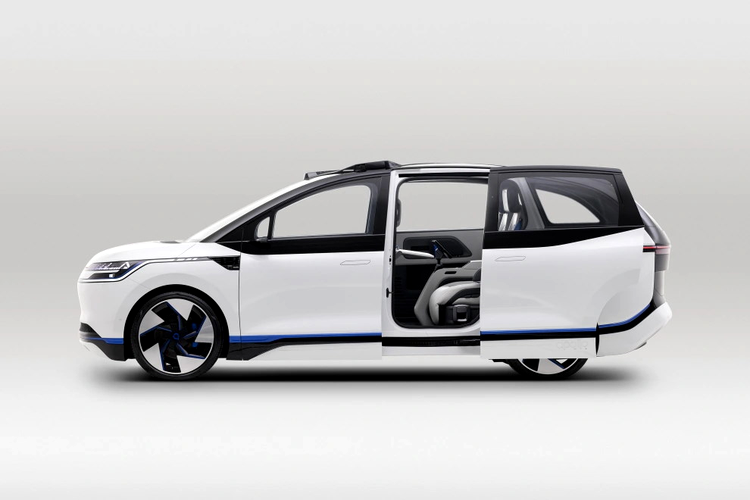Best known for its eponymous search engine, Baidu unveils the first electric car designed from the ground up to run driverless taxi services.
Fully named the Apollo RT6 EV, it’s a hybrid between a conventional SUV and a minivan, complete with sliding-opening doors so you can get out of the car even in a tight parking lot. But the main distinguishing feature is the dashboard with no instruments and no steering wheel. Basically, this is a front-back passenger vehicle, where you can sit in the driver’s seat without the hassle of a steering wheel or pedals.
Assuming you can get over the awkward feeling of sitting in the driver’s seat in a car with no steering wheel and no one to guide you, you can spend the entire trip admiring the scenery, eating your previously purchased breakfast, or reading a book.
The new vehicle is to be included in the Apolo Go fleet of autonomous taxis, available ride-hailing using a smartphone app.
From a cost perspective, it looks like each vehicle will come in at just $37,000, unbeatable when you consider the size and comfort offered inside. Of course, the price valid for the Chinese market comes without the compromise of import duties or overseas delivery, but also the benefit of subsidies from the Chinese Communist Party.
The new electric vehicle for robotaxi services is already the sixth generation of Baidu’s signature autonomous vehicle and the first model built on its own platform, the Xinghe. Baidu claims that recent advances in optimizing manufacturing processes have greatly reduced production costs, making it possible to manufacture and operate a fleet that will number in the tens of thousands of driverless taxi cars covering major Chinese metropolises such as Beijing, Shanghai, Guangzhou and Shenzhen by next year.


 What’s happening with AI? Researcher explains why you can look forward to more creative NPCs, competition for ChatGPT and hot dog tomatoes
What’s happening with AI? Researcher explains why you can look forward to more creative NPCs, competition for ChatGPT and hot dog tomatoes Cowboy launches new on-demand service: That’s what’s inside
Cowboy launches new on-demand service: That’s what’s inside The new 4K Fire TV stick is now brutally reduced and transforms your old television into a smart TV
The new 4K Fire TV stick is now brutally reduced and transforms your old television into a smart TV The best mouse I’ve ever had, convinces me for gaming, work and home office and is different than all its predecessors!
The best mouse I’ve ever had, convinces me for gaming, work and home office and is different than all its predecessors! The first smart glasses suitable for everyday use that you can buy
The first smart glasses suitable for everyday use that you can buy